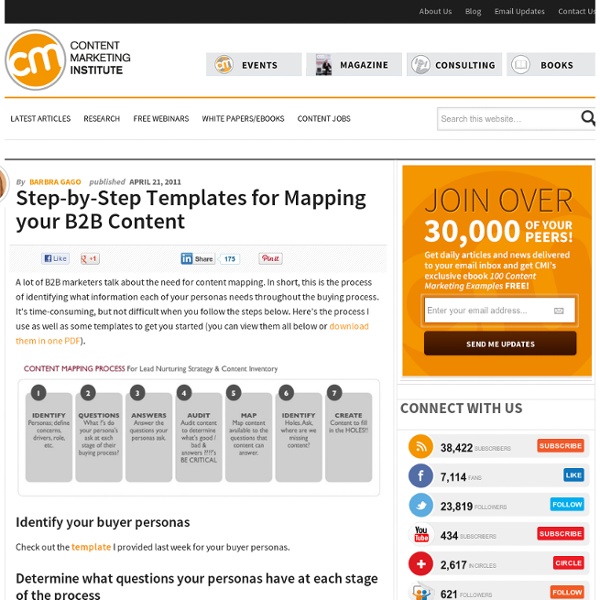



Intentional Design Inc. Brain Traffic Blog A List Apart: Topics: Content: Content Strategy Content strategy for desktop, mobile, and beyond. Copy as interface. Building trust through better writing and honest communication. Working with, and in some cases building your own, content management systems. The wisdom of community. It’s time to take up the torch—time to make content matter. Writing and editing for the web.
Content-ment Confab | Johns Hopkins Testing Content « Laura Creekmore Hearing Ahava Leibtag and Aaron Watkins talk about Johns Hopkins and how they test content. Challenge of working on a major academic medical center’s website: Lots and lots of cooks in the kitchen. Branding is difficult to maintain because content creation is widely distributed. Have to balance the interests of users [patients], doctors and executives. Wow, here’s the first challenge: Had a 6-page website promoting a weight loss program that offered medical support for people who wanted to lose 20-30 pounds, and also a $4000 procedure that insurance wouldn’t cover. Competing visions of the site: One person wanted 60-page, research-heavy site.One person wanted to answer patient questions.One person wanted to promote services and show ROI. How do you meet all these needs? Created a competitive landscape analysis: Discovered no competitors had research-heavy sites, but instead were all consumer-friendly. Can users find, read, understand, act and share your content?